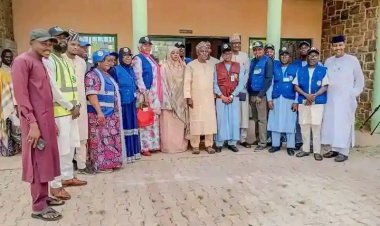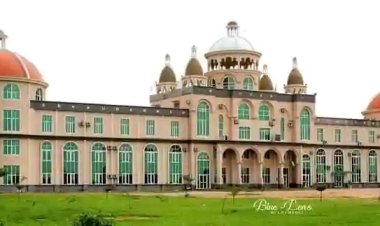Vibrant Institutional Frameworks, Quality Education And Economic Growth - IAUE Professor Samuel Owhdondah
Ignatius Ajuru University of Education (IAUE) Professor Samuel Owhdondah has said that Vibrant Institutional Frameworks are; Quality Education And Economic Growth

All over the world, nations are focusing on building vibrant institutional frameworks in their quest for quality education which is a precursor to the availability of skilled manpower, Myschoolnews gathered.
This is because education shapes individuals from early life until adulthood, and this reflects at a personal level in terms of earnings, health, family life and well-being.
At a societal level, education produces the skilled manpower needed to drive economic growth. It also inculcates good values, and morals and the development of positive attitudes that foster patriotism.
Hence, nations are promoting access to global education by leveraging information and communications technology infrastructure to build robust innovative platforms where intellectual expertise instead of natural resources are driving their economies.
However, Samuel Owhondah, a Professor of Economics of Education at Ignatius Ajuru University of Education is worried that corruption in Nigeria’s educational sector is eroding credibility and trust in the ability of the nation’s educational institutions to put the country at par with its contemporaries in the fast emerging knowledge-based economy.
Speaking in a lecture titled “Bunkering in the Nigeria Education Sector”, Prof. Owhondah regretted that the importance of value education on human capacity development is being hampered by some cankerworms which he described as bunkers, comparing it with what is happening in Nigeria’s oil and gas industry.
He lamented that like the vandals in oil bunkering, quacks, unlicensed and unauthorised operators have evaded the nation’s educational sector while noting that the situation poses a threat to the development of competent manpower and an economically healthy nation.
He posited that the rot in the nation’s education system has created frustration and disconnection, and damaged the aspirations and social cohesion that are necessary for a successful society.
Consequently, the state of the affairs of Nigeria’s education, he noted, should be a cause for deep concern to every Nigerian, particularly against the backdrop of the fact that no nation can rise above the quality of its education system.
Prof. Owhondah stressed that the link between quality education and economic development cannot be overemphasised because affordable high-quality education empowers societies and individuals, making it one of the most effective channels for advancing a productive and moral society.
To that effect, there is the need to holistically address the ills bedevilling Nigeria’s education sector by building vibrant institutional frameworks that will help Nigerians to reprioritize their values and place the country above personal ambitions.
This will lead to quality and affordable education for the citizens, a bridge in the skills gap, and ultimately, a robust economy that will rev up the growth and development of the Nigerian nation.
When this happens, Nigeria will no doubt reap the benefits of a knowledge-based economy like other nations.





